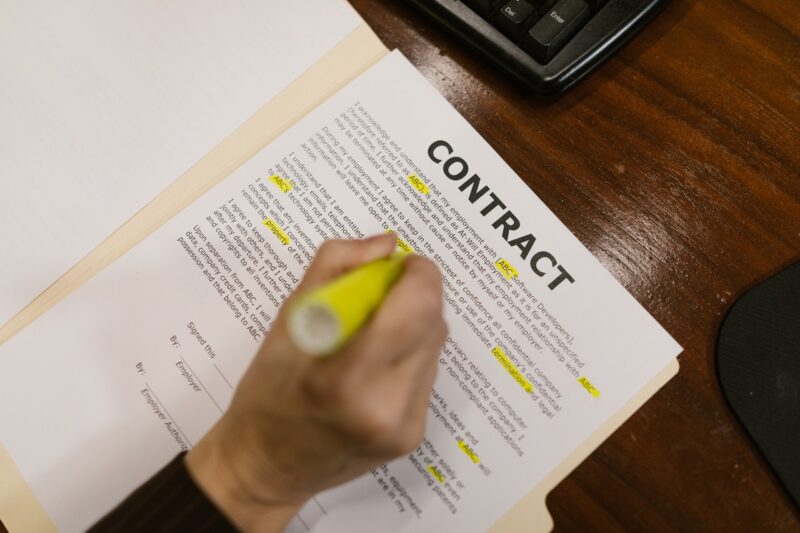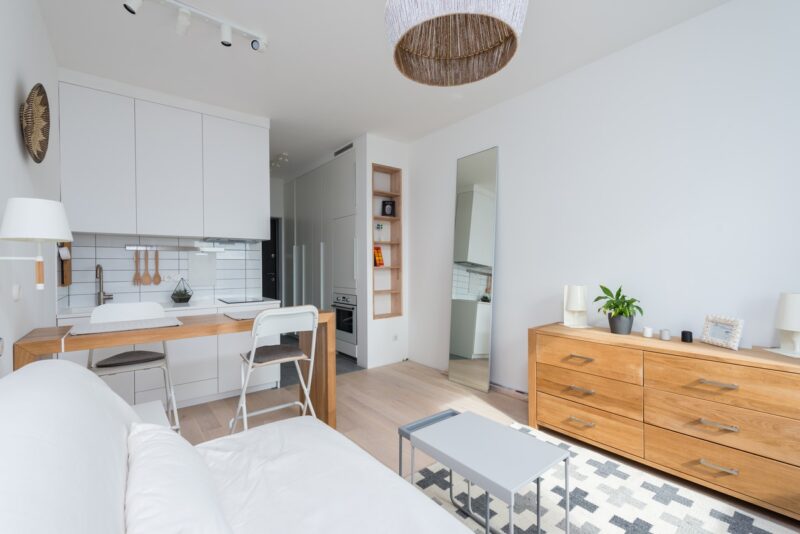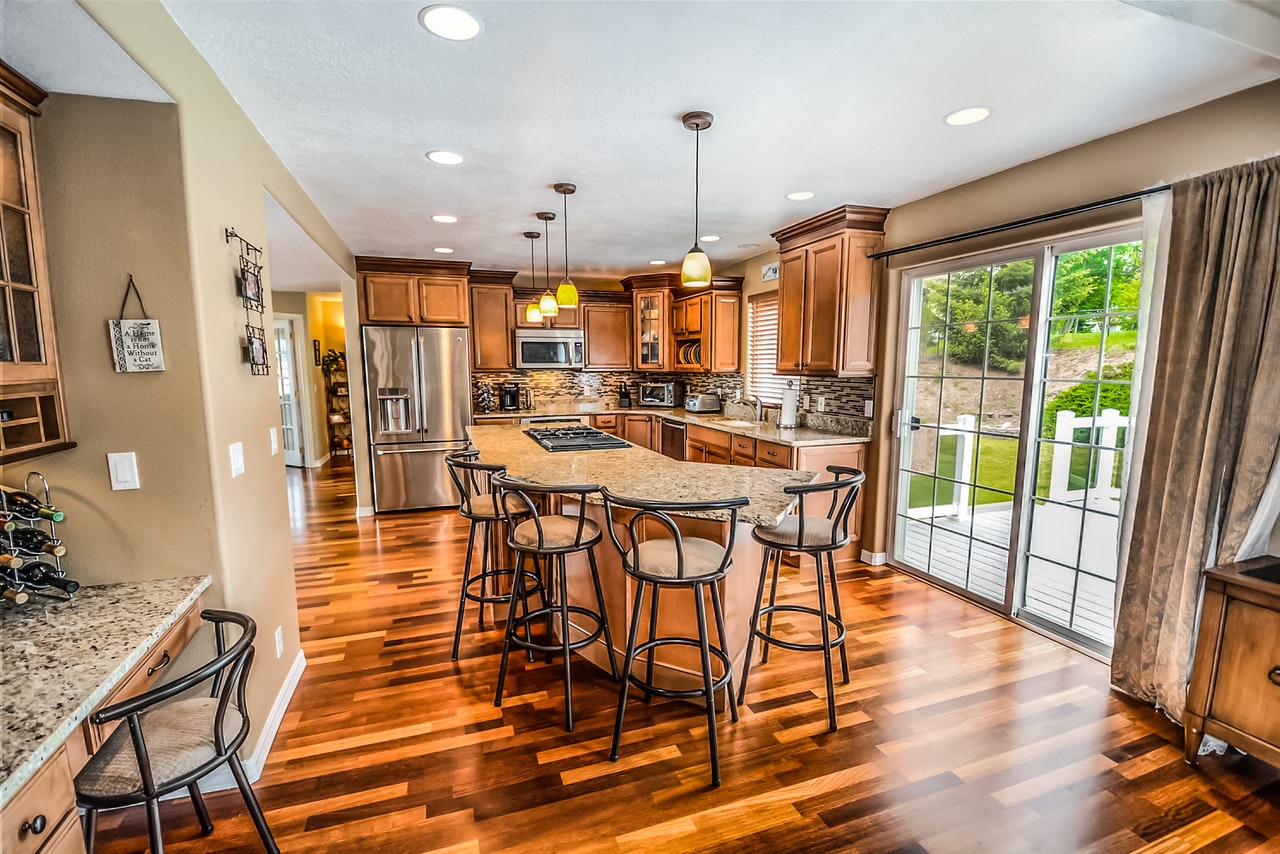You are a property owner whether you manage some properties that belong to you or someone else. Or if you do rentals full-time or rent out a single property as a supplemental source of income. You are often expected to know it all as a landlord.
Whatever the case, many people are perplexed about the distinction between a lease and a rental agreement.
Lease Agreement vs Rental Agreement
The legal terms “lease agreement” and “rental agreement” are frequently confused. They are used interchangeably very often to refer to the same thing. However, the terms can refer to two different types of agreements.
Leases and rental agreements are both legally binding contracts. However, each serves a distinct purpose. The critical distinctions between a lease and a rental agreement are discussed below.
What is a Lease Agreement?
Many landlords require tenants to sign lease agreements before moving into a rental property.
A lease is a written contract between a tenant (or a candidate to the tenancy) and a landlord that grants the tenant the right to live in a property for a set period, typically six or twelve months. The lease is bound by a contract between the landlord and the tenant.
Leasing Contracts In Detail
Residential leases are tenant contracts that spell out the expectations of the landlord and tenant, such as rent, pet rules, and the length of the agreement.
A strong, well-thought-out, and well-worded lease contract can help ensure that both parties’ best interests are protected, as neither party can change the deal without the other’s written consent.

What is a rental agreement?
Lease agreements and rental agreements are very similar. The length of the contract is the most significant distinction between a lease and a rental agreement.
A rental agreement will provide a rented property for a shorter amount of time, 30 days. Most rental agreements are “month-to-month,” and they automatically renew at the end of each term (month) unless otherwise specified by the tenant or landlord.
A rental agreement allows the landlord and tenant to change the terms of the agreement at the end of each month (so long as appropriate notice procedures are followed).
Lease and rental agreements can differ in structure and flexibility. Some contracts, for example, may include a rental unit pet policy, whereas others may consist of an additional supplement about rules or regulations, such as excessive noise.
Local, State, Federal Laws
Laws vary depending on the state where the contract is taking place. Landlords may be required to include specific disclosures on the contract. These may range between asbestos, mould, and registered sex offender information on their lease or rental agreements or any other.
Always research the local laws. Always make sure that your lease or rental agreement complies with local, state, and federal laws.
Lease Agreement vs Rental Agreement: Advantages and Disadvantages
The benefits and drawbacks of each contract fall into a few categories and are determined by the type of landlord-tenant relationship you seek. Let us begin with the benefits and drawbacks of a lease agreement.
Benefits of a lease agreement
If stability is your top priority, a lease may be the best option for you. Many landlords prefer leases over rental agreements because they are designed for consistent, long-term tenancy.
Placing an occupant or tenant in a property for at least a year may provide a more predictable rental income stream while reducing turnover costs.
The drawbacks of a lease agreement
However, once a lease agreement is signed, the rental cost is fixed until the agreement expires. In an up-and-coming neighbourhood with consistently rising property values, 12 months of a fixed rental fee could mean missing significant additional income from market increases.
A lease is an excellent option for landlords looking for consistent income, but it may harm profitability if property values increase within that year.

Benefits of a rental agreement
- Price Flexibility: Because a rental agreement is for a short period, it allows for much more flexibility in rent increases. Rent can technically be revised each month with a rental agreement to stay in line with current fair market rent as long as rent increases comply with local law and the notice provisions governing the month-to-month rental.
- Guaranteed Income: A rental agreement with a fixed term guarantees a steady stream of income for the length of the lease. This can be helpful for financial planning and managing property costs.
- Reduced Vacancy Rates: Longer leases mean less frequent tenant turnover, which saves landlords time and money on advertising and re-renting the property.
- More Control Over the Property: Landlords can set restrictions on tenant behavior in the lease agreement, such as noise limitations or guest occupancy.
Drawbacks of a rental agreement
- Difficult to remove problematic tenants: Evicting a tenant who violates the lease terms can be a lengthy and expensive process.
- Less flexibility for themselves: Landlords may not be able to move back into the property or sell it easily if they are locked into a long-term lease with a tenant.
Online Resources for Rental Price Comparisons
Rentometer is a valuable tool for searching rental price comparisons in your area.
Your tenant must understand that the landlord has the right to raise the rent rate from month to month under a rental agreement. A rental agreement is ideal for renters who cannot sign for a 12-month lease period for different reasons.
It may open new doors to many qualified tenants looking for a short-term rental. Students near college campuses or doctors and medical staff near significant hospitals. Both options may be in high demand and give you substantial profits.

Why should you rent your property?
Renting your home is the best way to earn extra money. When you think of doing this, you are coming in competition with the rental market.
It would be best if you made your property attractive so that the rentals give you a good amount for that. It is a very professional move to enhance your financial state.
There are several benefits of renting your house:
- Steady stream of income: This is likely the biggest perk. Rental income can help you cover your mortgage, property taxes, and insurance, potentially creating a positive cash flow. In some cases, the rent may even exceed your monthly housing costs, generating additional income.
- Potential for property appreciation: It is a long-term capital appreciation. Over time, real estate values tend to rise. Becoming a landlord is an intelligent financial decision. By renting out your house, you retain ownership and can potentially benefit from this appreciation when you eventually sell the property.
- Reduced maintenance burden: You are free of maintenance costs or repair bills. Typically, leases transfer responsibility for minor repairs and maintenance to the tenant. This can save you time, money, and hassle.
- Tax advantages: In some regions, there may be tax deductions available for rental property owners. These can offset some of the costs associated with owning and maintaining a rental property.
- Long-term investment: Renting your house can be a way to build wealth over time. The property value can appreciate, and the rental income can be used to save for future goals or invest in other properties.
- House remains occupied: An occupied house is generally less susceptible to vandalism or squatters compared to a vacant property.
- Increased liquidity compared to selling: It automatically gains your entry into the rent estate club and helps you maintain your flexibility and style. Renting allows you to hold onto the property while still generating income. This can be advantageous compared to selling the house outright, especially if you’re not ready to fully part ways with it.
Remember, renting also comes with responsibilities like managing tenants, repairs, and potential vacancies. It’s important to weigh the pros and cons carefully to decide if renting is the right choice for you.
How to Get the Perfect Tenants for Your Property
Finally, renting your property gives you greater peace of mind as the tenants keep your house and look after it. To give your home on a rent to the tenants on a perfect amount, you must follow the suggestions mentioned below:
1. Use Social Media
Using social media is the best way to market properties, and it helps you connect with tenants easily. It is the best communication tool that links you with the world and enables you to share, create, and outspread information.
After posting an ad about your property, you can get many people as almost everyone nowadays uses social media.
Cost Free Option
The most significant benefit of this platform is that it offers opportunities to advertise free of cost. If someone is searching for new rental property, they might find your listing on social media.
To make your house look more beautiful on-screen, the quality of photography is the most critical factor. It makes your property look more eye-catching and helps you find good renters.
Photos are the first and foremost thing that people look at, so it makes a massive difference to showcase your vacant place as you know that in this modern world, very few people browse newspapers or any cards. They prefer social media for this purpose.
All social media platforms can be considered for this purpose, but Facebook, Twitter, and YouTube are the best as people use them more. It would help if you had a marketing plan for your property.
You can join a local buy and sell group on Facebook, and then you can easily reach the tenants in your area. It is evident that it takes time to build a social media presence, but no doubt, it is worth it.
2. Hire a Professional
If you want to offer your house or apartment for rent without any effort, you must consider consulting a professional property manager for this purpose. You can easily rent your home through a letting agent in South London.
Trust The Professionals
They are experts at finding good renters and taking care of all the details like security checks, verifying employment, collecting tenants’ previous landlord references, and much more.
The most significant advantage of property managers is that they also collect rent from the tenants if you are far away from your house and handle complaints and emergencies.
These professionals will charge you for this purpose, but it is worth it as you can rent your home effortlessly. They save your precious time and reduce your stress as well.
So if you want to get rid of any hassle relate to your property getting hired, you must consider a professional at once.
3. Renovate your Home in Modern Way
To get good renters, you must renovate your house first before giving it to them. This will surely help you rent your home at a reasonable rate.
You must create an appealing space for them. Instead of laying carpets, you must go for tiles as the carpet gets dirty, and you have to change it more often.

Conclusion
Paint the walls with white or grey colour as it looks decent. If the kitchen is too old, then you must replace the cupboards and work surfaces.
Your house must be clean and presentable. People consider such renovated places more than others. It not only gives benefits to the tenants but also enhances the value of your house.
Above mentioned tips are essential when you think of renting your house. So try to follow them and save your money and time.
Stephanie Caroline Snyder graduated from The University of Florida in 2018; she majored in Communications with a minor in mass media. Currently, she is an Author and a Freelance Internet Writer, and a Blogger. She was born and raised in Panama City, Florida, where her family still lives.


